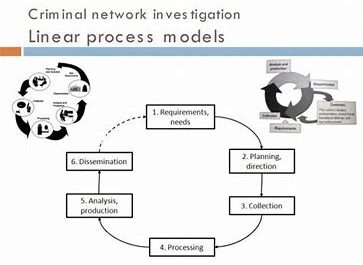Abstract:
Criminal psychology delves into the intricate workings of the criminal mind, seeking to comprehend the underlying psychological factors contributing to criminal behavior. This essay provides an in-depth analysis of criminal psychology, examining its theoretical foundations, research methodologies, key concepts, and practical applications. It explores various aspects of criminal psychology, including the development of criminal behavior, psychological risk factors, motivations for crime, offender typologies, and interventions for rehabilitation and prevention. Furthermore, the essay discusses contemporary issues and challenges in criminal psychology, such as the intersection of mental health and criminality, forensic assessment techniques, and ethical considerations in forensic practice. By illuminating the complexities of criminal psychology, this essay aims to foster a deeper understanding of the psychological dynamics of offending and inform strategies for crime prevention and intervention.

Table of Contents:
I. Introduction
II. Theoretical Foundations of Criminal Psychology
III. Research Methodologies in Criminal Psychology
IV. Key Concepts in Criminal Psychology
A. Development of Criminal Behavior
B. Psychological Risk Factors for Offending
C. Motivations for Crime D. Offender Typologies
V. Interventions for Rehabilitation and Prevention
A. Psychological Assessment and Treatment
B. Cognitive-Behavioral Interventions
C. Prevention Strategies and Programs
VI. Contemporary Issues and Challenges in Criminal Psychology
A. Mental Health and Criminality
B. Forensic Assessment Techniques
C. Ethical Considerations in Forensic Practice
VII. Future Directions and Implications
VIII. Conclusion

Introduction:
Criminal psychology, also known as forensic psychology or
criminological psychology, explores the psychological factors
underlying criminal behavior and the psychological processes
involved in offending.
By examining the cognitive, emotional, and behavioral aspects of offenders, criminal psychology seeks to elucidate the motives, risk factors, and patterns of criminal conduct. This essay provides a comprehensive analysis of criminal psychology, exploring its theoretical foundations, research methodologies, key concepts, interventions, contemporary issues, and challenges.
Theoretical Foundations of Criminal Psychology:
Criminal psychology draws upon various theoretical frameworks to understand the complex interplay of individual, social, and environmental factors contributing to criminal behavior. Some of the key theoretical perspectives in criminal psychology include:
- Psychodynamic Theory: Psychodynamic theories, rooted in the work of Sigmund Freud and others, emphasize the role of unconscious drives, childhood experiences, and personality dynamics in shaping criminal behavior. Psychodynamic perspectives explore the influence of early life experiences, unresolved conflicts, and maladaptive coping mechanisms on the development of criminality.
- Social Learning Theory: Social learning theory, proposed by Albert Bandura, suggests that individuals learn behaviors through observation, imitation, and reinforcement. Social learning perspectives examine how exposure to deviant models, reinforcement of antisocial behaviors, and socialization processes contribute to the acquisition of criminal skills and attitudes.
- Rational Choice Theory: Rational choice theory posits that individuals engage in criminal behavior as a result of rational decision-making processes, weighing the costs and benefits of potential actions. Rational choice perspectives explore how situational factors, opportunities for crime, and perceived rewards influence individuals’ decisions to offend.
- Biosocial Theory: Biosocial theories integrate biological and environmental factors to explain criminal behavior, emphasizing the interaction between genetic predispositions, neurobiological processes, and social contexts. Biosocial perspectives examine the role of genetic vulnerabilities, neurological deficits, and environmental stressors in predisposing individuals to criminality.
Research Methodologies in Criminal Psychology:
Research in criminal psychology employs a range of methodologies to investigate the psychological factors underlying criminal behavior, assess risk factors for offending, and evaluate interventions for prevention and rehabilitation. Some of the key research methodologies used in criminal psychology include:
- Longitudinal Studies: Longitudinal studies track individuals over time to examine the development of criminal behavior, identify risk factors for offending, and assess the effectiveness of interventions. Longitudinal research allows researchers to examine temporal relationships, identify developmental pathways, and explore individual differences in offending trajectories.
- Experimental Research: Experimental research designs manipulate variables and measure their effects on participants’ behavior to identify causal relationships and test hypotheses. Experimental studies in criminal psychology may examine the impact of situational factors, cognitive processes, or interventions on criminal behavior and decision-making.

- Quasi-Experimental Studies: Quasi-experimental studies utilize naturalistic settings or existing groups to compare outcomes and investigate the effects of interventions or treatments. Quasi-experimental designs may be used to evaluate the effectiveness of prevention programs, treatment modalities, or policy interventions aimed at reducing crime and recidivism.
- Qualitative Research: Qualitative research methods, such as interviews, focus groups, and case studies, explore the lived experiences, perspectives, and meanings attributed to criminal behavior. Qualitative research in criminal psychology may provide insights into offenders’ motivations, subjective experiences, and social contexts of offending.
Key Concepts in Criminal Psychology:
Criminal psychology encompasses various key concepts that inform our understanding of the psychological dynamics of offending, including the development of criminal behavior, psychological risk factors, motivations for crime, and offender typologies.
A. Development of Criminal Behavior:
The development of criminal behavior is influenced by a complex interplay of individual, familial, social, and environmental factors across the lifespan. Early childhood experiences, family dynamics, peer influences, school experiences, and community factors contribute to the development of antisocial behaviors and delinquency.
B. Psychological Risk Factors for Offending:
Psychological risk factors for offending encompass individual traits, cognitive processes, personality characteristics, and emotional factors that increase individuals’ vulnerability to engaging in criminal behavior. Psychological risk factors may include impulsivity, aggression, lack of empathy, low self-control, sensation-seeking, and cognitive distortions.
C. Motivations for Crime:
Offenders may be motivated by various factors and incentives to engage in criminal behavior, including financial gain, peer pressure, thrill-seeking, revenge, anger, or substance abuse. Motivations for crime may vary depending on the individual’s goals, values, experiences, and situational context.

D. Offender Typologies:
Offender typologies classify offenders into distinct categories or subgroups based on shared characteristics, patterns of behavior, and criminal motivations. Typologies may differentiate between violent and non-violent offenders, property offenders and drug offenders, as well as provide insights into the heterogeneity of criminal populations.
Interventions for Rehabilitation and Prevention:
Interventions in criminal psychology aim to reduce the risk of offending, rehabilitate offenders, and promote desistance from crime through various psychological assessment and treatment approaches, cognitive-behavioral interventions, and prevention strategies.
A. Psychological Assessment and Treatment:
Psychological assessment involves the systematic evaluation of offenders’ cognitive, emotional, and behavioral functioning to identify risk factors, strengths, and treatment needs. Psychological treatment modalities, such as cognitive-behavioral therapy (CBT), dialectical behavior therapy (DBT), and motivational interviewing, target criminogenic needs, address maladaptive behaviors.




